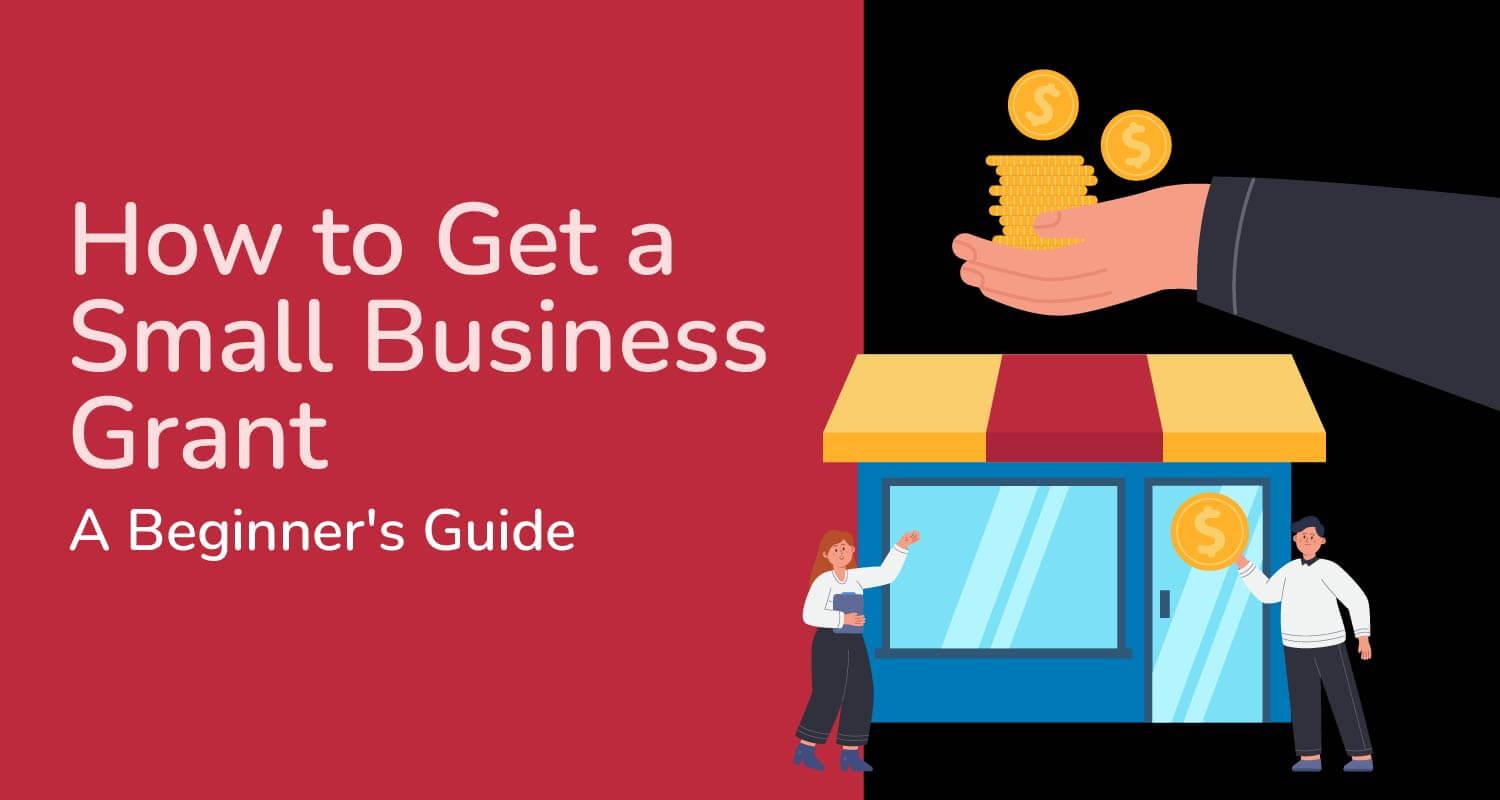
How to Get a Small Business Grant: A Beginner's Guide
Owning your own business is NO easy feat!
For many small businesses affected by the pandemic, having access to enough working capital has never been more challenging.
Many business owners have no choice but to seek out small business grants.
These are issued by federal agencies, private corporations, or nonprofit organizations to help businesses get funding to grow or stay afloat.
Unlike a traditional business loan, these small business grants DON'T NEED REPAYMENT!
That said, competition for securing a business grant is tight.
Whether you're an E-resident of Estonia or a business owner in Europe looking to apply and secure grant funding, you've come to the right place!
How to Apply for Small Business Grant Programs
Applying for a business grant is similar to applying for a business loan. For starters, you will need a STRONG business plan.
Since grants are basically free money, existing businesses will need to work harder and smarter to get noticed by investors.
Remember, every application will have different requirements, so there may be additional steps depending on the grant you are applying for.
Here are a few common steps you can follow:
Step 1: Conduct Research
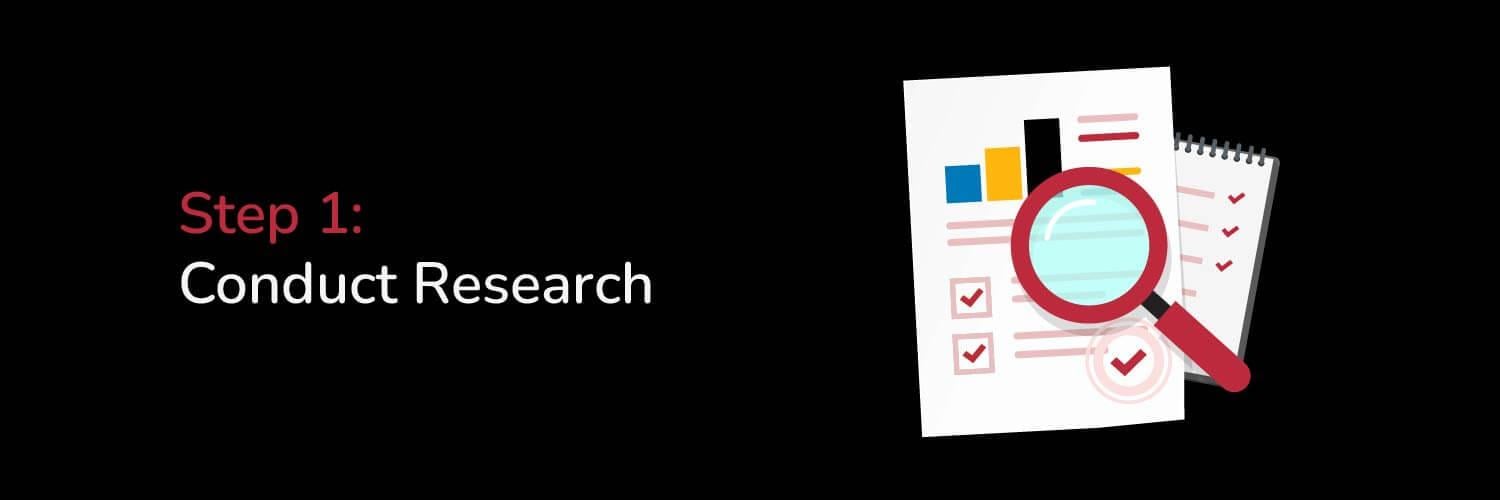
There are many different types of grants for small business development.
Conduct exhaustive research to find all the grants your business can qualify for.
Check out its program requirements, which will likely include business type, size, industry, and location.
Some grants may even require you to be a member of a specific organization to qualify.
Step 2: Build a Strong Application

At this point, business owners should focus on creating a robust application that stands out from the crowd.
Your application must include key details such as:
- Your business plan
- Financial status
- Why you deserve the grant
- Plans for using the funds awarded.
Your business plan must contain relevant and reasonable monetary figures, stats, and projections.
These reflect the HEALTH of your business and will determine whether or not you are worth investing in.
If you are unsure how to compose a business plan, seek advice from an accountant.
You will also need to submit the following documents:
- Employer Identification Number (EIN) / Taxpayer Identification Number (TIN)
- Contact and location information
- Financial Statements (tax returns, revenue history, bank statements, etc.)
- List of contracts your business currently holds
- Organizational Chart (including the number of employees)
- Social Media Handles (LinkedIn, Facebook, Twitter, Instagram, TikTok, etc.)
- Professional photos of you, your partners, and your offices
Step 3: Apply
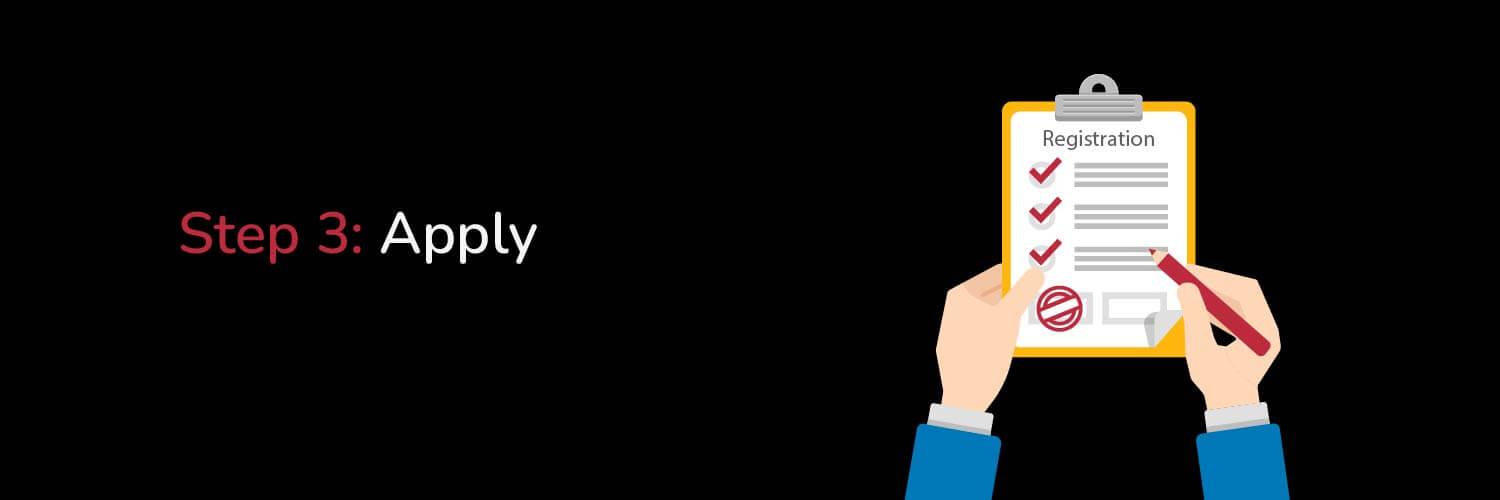
The next step is filling out the actual grant application. Give yourself a few weeks to fill this out meticulously.
Small business owners should expect to answer open-ended questions. The complexity of the application varies per grant.
This step is where you pour your heart out!
Talk about your passion, how you started, how your business contributes to the community, and how the funds can take you further.
Taking time to complete and review your application is the best way to get a step closer to winning the grant.
Make sure you make it within the deadline!
Step 4: Follow Up With the Grant Agency
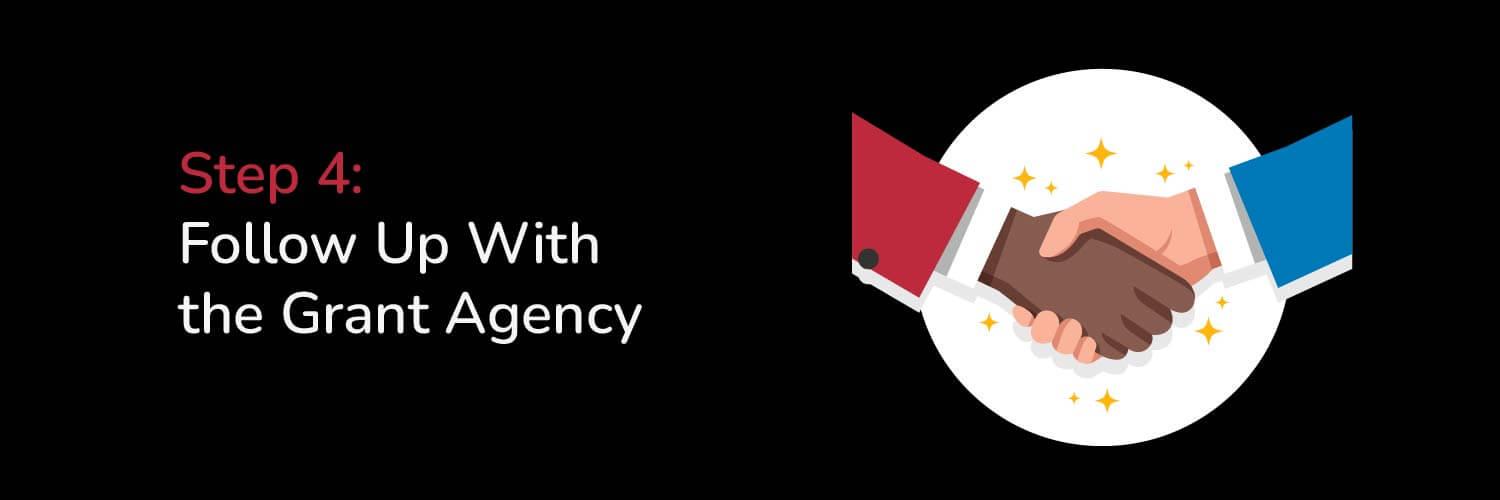
You may want to follow up with the funding agency after a few days or weeks once you've submitted your application, which shows them you mean serious business!
Also, allow them to ask questions if they have any.
What Is a Small Business Grant?

Small business grants are financial aid offered to small business owners to help them achieve their goals.
This money helps with start-up costs or expansion plans that ultimately increase business profitability.
To be eligible, you must be a legally-registered business. Business owners must meet certain criteria too.
- For example, certain grants are available to minority-owned businesses, small rural businesses, veteran-owned businesses, women-owned businesses, etc.
- Government agencies even offer local grants to local small business owners.
Unlike small business loans, these small business grants do not need to be repaid!
You also don't need to put up any collateral, making this funding a breath of fresh air for small business owners!
Depending on the government agencies, private corporations, and foundations offering grants, small business owners can apply for MULTIPLE grants to fulfill different needs.
Some grants can even be renewed if the grantor verifies the use of secured funds.
Types of Small Business Grants

You can find many types of grants, but they usually come from two major entities: state and local governments and private organizations.
Applying for a grant involves A LOT of paperwork, regardless of the fund source, so eligible small businesses should be ready to provide the legal and administrative requirements.
Get to know the different types of small business grants and know whether you are eligible to apply.
Private Small Business Grants
A private grant program is much like federal grants, except they come from privately-owned businesses.
These grants also come with their own application requirements and are specific to certain types of companies, usually in industries where they match.
Small businesses can use this money to fund various business endeavors.
These grants are often offered to small businesses owned by ethnic minorities, veterans, women entrepreneurs, and the like.
However, unlike federal grants with a centralized government database, private small business grants may be TOUGHER to find.
Business owners must be extra resourceful and keep an eye on these private grant contests!
Grant Opportunities from Foundations
For-profit companies are not the only ones who offer grant funding; associations, foundations, societies, and other organizations do too!
A nonprofit organization can award a grant program to specific groups like women entrepreneurs, minorities, etc., who share the business objectives that they are looking for.
Small business owners should expect exacting requirements and make sure to choose only grants they can qualify for.
Grants for Small Businesses from Larger Businesses
Like private business grants, larger private companies can offer local businesses funding opportunities to kickstart their business idea.
Since traditional business loans only offer money to businesses that have been operating for at least six months to a year, looking for ample funding can be a challenge for startups.
These private grants should fix this gap. However, they can be very competitive.
Startup owners should find grants that support EARLY-STAGE companies. Make sure you fit the demographics and eligibility criteria the company prefers.
You might get the funding you need if you have a good idea!
Tips to Increase Chances of Winning a Small Business Grant

With free money up for grabs, it's no surprise how tough competition can be
Consider these valuable tips to increase your chances of success in getting a small business grant.
Focus on a Strong Business Plan
Ensure you outline your goals, strategies, and financial projection well, proving to grantors and investors that you KNOW what you're doing.
Stay Selective
Don't waste your effort applying for all types of grants.!
Avoid applying for federal small business grants where the odds aren't good. Go for grants that align well with your business goals.
Share Your Passion
Throughout the application process, make sure you communicate your passion. Grant reviewers will not only be drawn by good figures but also by emotions!
Back-Up with Good Financial Figures
The organization will want to put its money into something that has potential. Ensure you include your sales figures and growth projections in your business plan.
Provide Accurate and Up-to-Date Information
Provide reviewers with historical and current information to determine the health of your business.
Also, you will want to make sure every detail is accurate. To be sure, hire a proofreader before submission.
Be Prepared
Potential funders will likely want to talk to you and your partners before awarding you a grant.
Make sure to be competent and confident when answering every question!
They will likely ask what your business is about, how it makes money, and what's in it for the future.
Seek Advice
Talk to some program staff, experts, and former grantees for advice on how to apply. It's also good to test your business product or service to see how you'd fare.
Follow Up
Once you've submitted your application, follow up with the funding agency.
Following up will show them that you're SERIOUS about your business and allow them to ask any questions they may have.
Have a Contingency Plan
If your application gets denied, make sure you have a plan, meaning reapplying for the same small business grants or researching other companies that support small businesses.
Business Grants vs. Business Loans
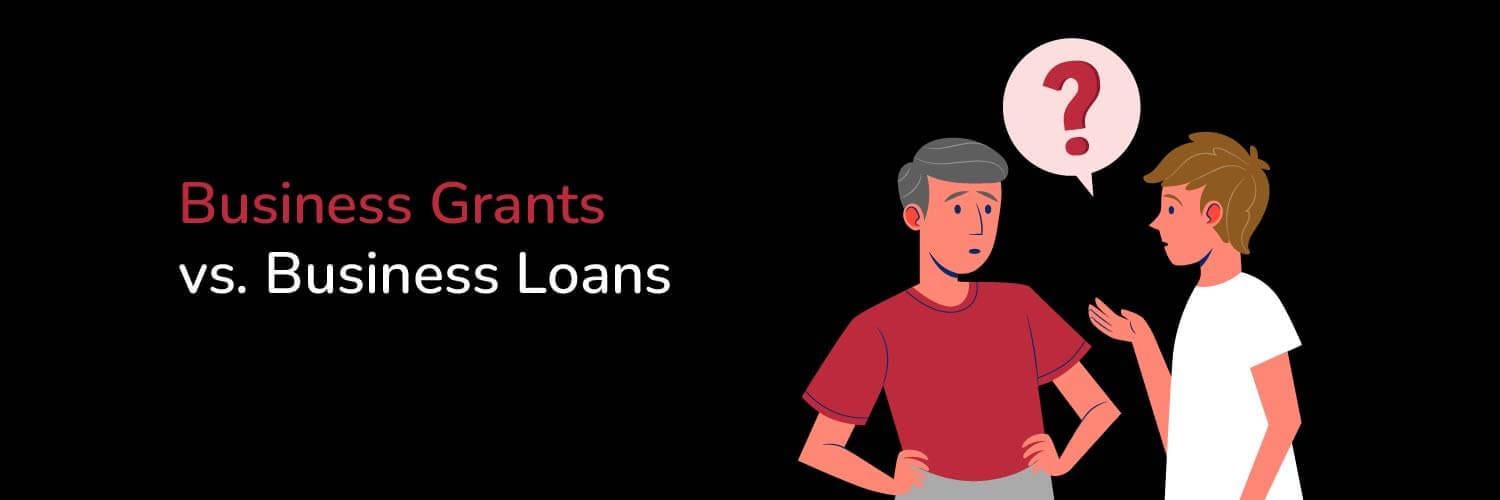
Although both get you money for your business, grants specifically do not require repayment, while loans do.
Grant recipients can be as SPECIFIC as women-owned businesses, veteran-owned businesses, etc., awarded by government departments, trusts, or corporations.
Meanwhile, loans from banks and other traditional financial institutions are given to whoever applies and passes the application.
Both have their fair share of difficulties regarding application and acceptance, but it is worth the effort to keep your business up and running.
Here are more things to know about grants and loans:
Grants are Taxable
For tax purposes, grant funds are considered taxable income, which is a downside to business grants and should be accounted for when planning how to use the grant money.
Loans Require Interest and Collateral
Grants generally do not cost anything, while loans come at a high cost.
Depending on your business financing type, you may need to submit an asset for collateral and pay interest and fees.
Your credit score, cash flow, and years in business will determine these factors.
Grant Money Doesn't Build Business Credit
Borrowers know it takes credit to build credit.
Since business grants are not reported to business credit reporting agencies, grant money won't help you borrow money from the bank if needed.
Grants Are Direct Competition
Whether you apply for a grant or get approved for a loan, there is no guarantee.
However, when it comes to grants, you are DIRECTLY competing with other businesses for the same money.
Meanwhile, a loan requires you to prove your capacity to repay a lender.
Loans Come With Consequences.
If you cannot repay a loan on time, you face the risk of repossession of your asset, additional fees and interests, damaged personal and credit scores, or bankruptcy.
Although grants don't have these consequences, larger federal grants might require specific reporting and only release funds after certain milestones.
Frequently Asked Questions
Got more questions on small business grants? We've got you covered!
Where Can You Find Grants for Small Businesses?
Be on the lookout for small business grant contests!
Private companies offer grant opportunities through their websites too. Although, since they do not have a database like the federal agencies, it may be harder to find.
It could take some time to find the grant program meant for you. Nevertheless, the process is worth the possible award money you could get in return.
How Can Small Business Owners Secure Grants in Estonia?
Suppose you're an E-resident of Estonia looking to cultivate your business.
In that case, plenty of grantors in the private sector, such as Enterprise Estonia and KredEx are keen on increasing the vibrancy of Estonian markets.
They are willing to invest in making your business plan a REALITY!
The European Union is also generous regarding pre-financing Estonian small businesses and those of its E-residents.
How Can Small Business Grants be Used?
Many grant programs allow small businesses to use the grant money for whatever purpose!
However, others, especially federal grants, may limit the use of funds to purposes such as hiring employees, purchasing equipment, research and development, and marketing.
You will also need to document how money is spent and be subject to regular reporting and auditing.
What Happens if You Don't Use the Grant Money Properly or Go Out of Business?
In many cases of federal government grants, you may be required to repay the grant in full as if it were a business loan if you misuse the grant money.
Also, some grants are only awarded once certain parameters in business or milestones are already met.
Additionally, if you go out of business, you must supply meticulous documentation of how the grant was used. Failure to do will also require you to pay the grant back.
Conclusion

Grants for small businesses are great opportunities to help you grow your business and achieve goals you wouldn't have been able to do on your own.
Grab EVERY opportunity!
What's important is you take your time composing a strong business plan and prove why you deserve the grant money.
What's left after that is to hope for the best. Good luck!


